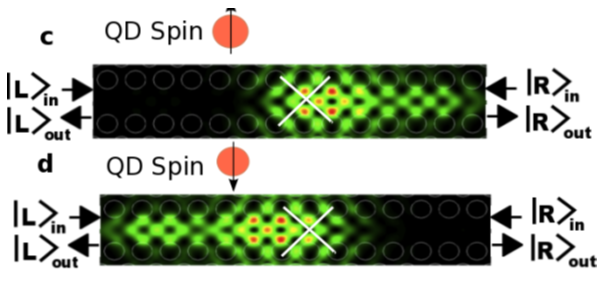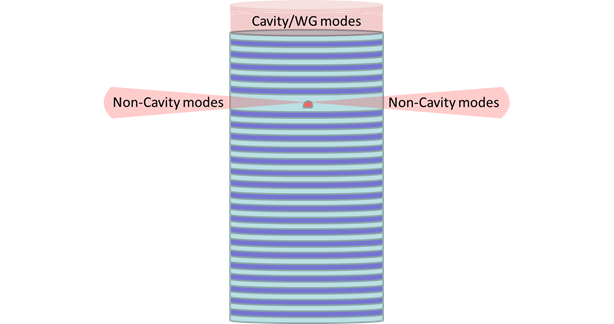Oulton Group
Research interests and activities
Our main research in the quantum dot technologies group is into the use of quantum emitters, chiefly semiconductor quantum dots, embedded in photonic devices, for applications in a range of quantum technologies. One of our main areas of interest is in storing information in the single electron spins in quantum dots, and transferring that information to photons in an efficient way.

We have pioneered the use of polarization singularities in nanophotonics, showing that by controlling the QD spin in a nanophotonic structure one may overcome the reciprocity condition to achieve unidirectional emission. We were the first to predict such behaviour in solid-state systems, and have demonstrated that these effects are tolerant to fabrication errors and are robust to QD placement.
The applications of this technology are in efficient integrated single photon sources and multi-system entangled spin states.

We are world-leaders in the field of bright spin-photon interfaces. We use semiconductor quantum dot micropillar devices to combine the long coherence times of QD electron spins with very high extraction efficiency micropillar photonics. These allow us to guarantee transfer of quantum information between an electron spin and a photon. The basis of this technology will allow development of efficient quantum memory devices, generation of chains of entangled photon states and distributed entanglement of spin states.
- Ultra bright and efficient quantum dot spin-photon interfaces
- Exploiting photonic polarization singularities and spin texture in nanophotonics to control spin-photon interactions, for example, achieving unidirectional emission in waveguides
- Design of ultra-bright single photon sources
- Exploring fundamental physics of light-matter interactions at single quanta level
- Electron-nuclear spin interactions in quantum dots with a view to long-term nuclear spin memories
The applications of our research will lead to
- Ultra bright and efficient single photon sources at telecoms wavelength for quantum communications
- Development of miniaturised and scalable quantum memory technologies for quantum communications
- Quantum simulations using photonic and spin cluster states
- David DlakaResearch Associate
Current PhD students
- Tom Bryce
